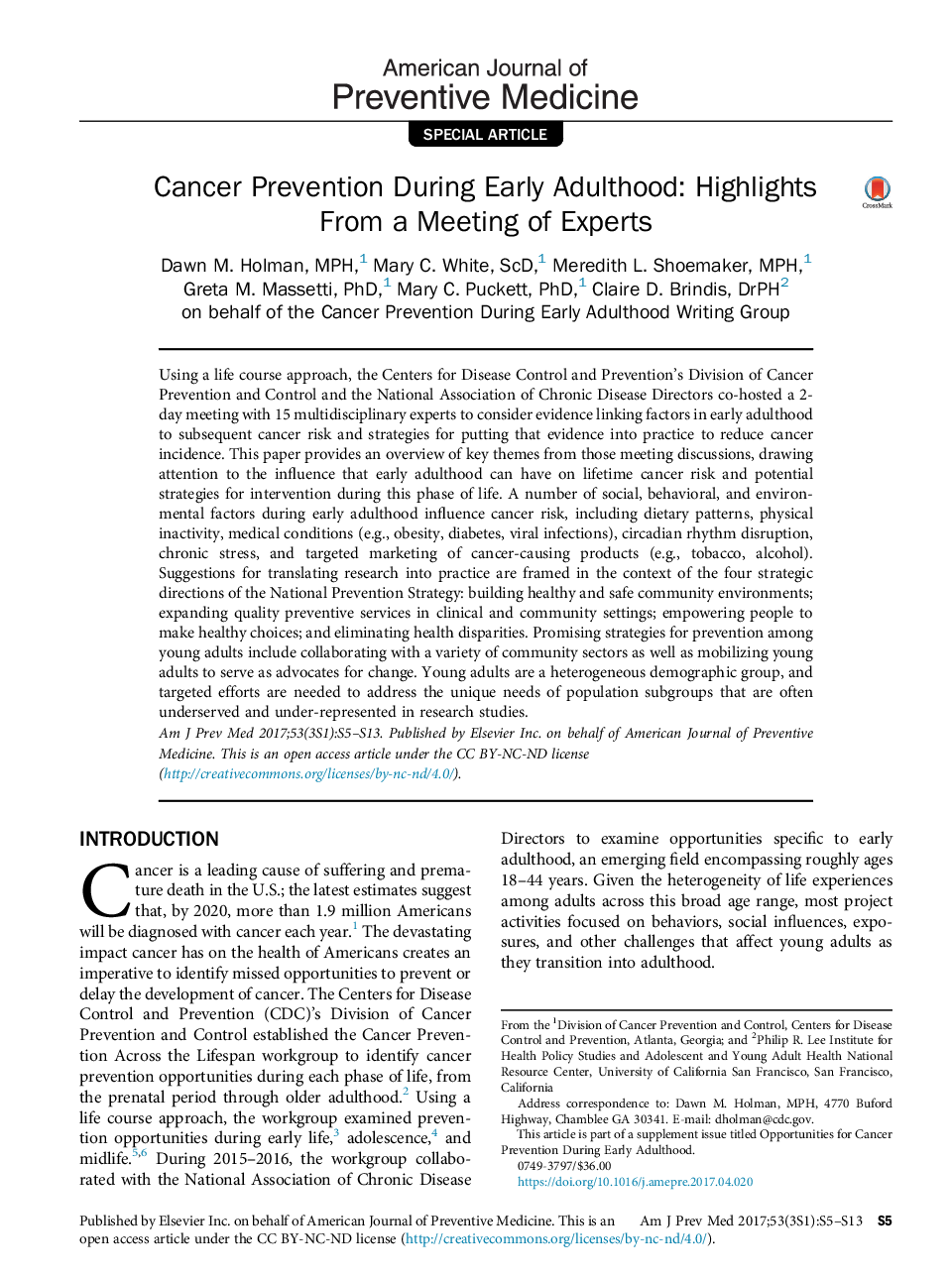ترجمه فارسی عنوان مقاله
پیشگیری از سرطان در دوران بزرگسالی: نکات برجسته از جلسه کارشناسان
عنوان انگلیسی
Cancer Prevention During Early Adulthood: Highlights From a Meeting of Experts
| کد مقاله | سال انتشار | تعداد صفحات مقاله انگلیسی |
|---|---|---|
| 85229 | 2017 | 9 صفحه PDF |
منبع

Publisher : Elsevier - Science Direct (الزویر - ساینس دایرکت)
Journal : American Journal of Preventive Medicine, Volume 53, Issue 3, Supplement 1, September 2017, Pages S5-S13

